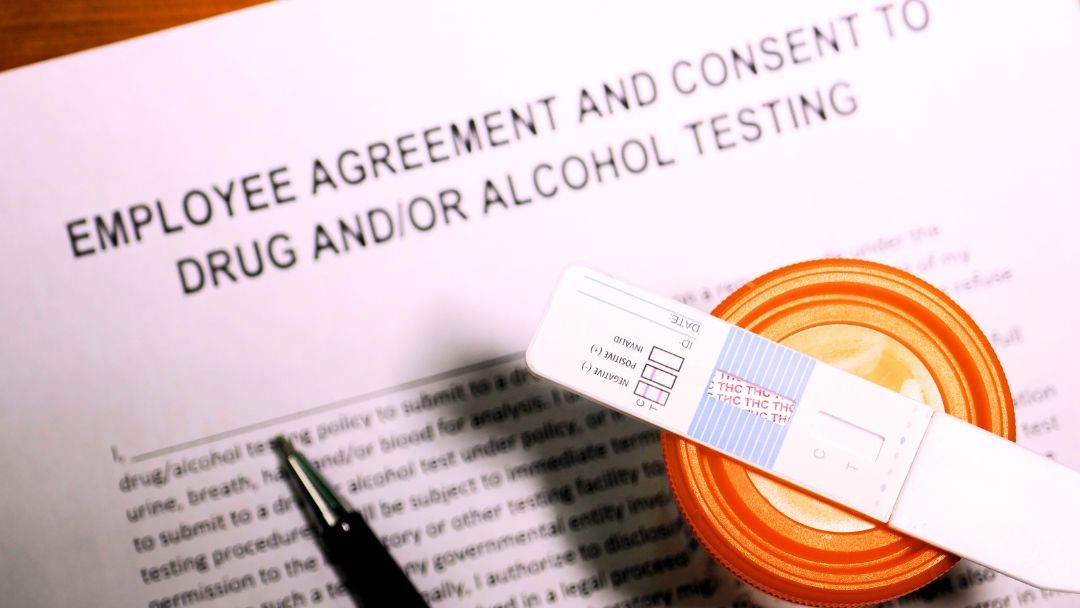Introduction
Recreational cannabis has been legal in Canada for nearly five years now. Have you ever stopped to think about how the evolving cannabis landscape in Canada influences our workplaces? If you've found yourself pondering this, pull up a chair. Let's dive in.
THC and Cannabis: Demystifying the Buzz
Now, before we journey further, let's make sure we're on the same page about tetrahydrocannabinol (or THC). Think of THC as the ingredient that gives cannabis its pizzazz. It's the primary psychoactive compound in cannabis that gives users the "high" feeling. The potency of cannabis is often measured by the concentration of THC it contains. Similar to checking the nutrition label on your favourite snack, you can check the potency of cannabis by looking at the THC concentration on its label.

The Workplace: Navigating Legalities
Human Rights and Cannabis: In Canadian workplaces, the duty to accommodate often shines a spotlight on medical cannabis users. The duty to accommodate is about creating a workspace where everyone feels understood and acknowledged. This means employers must make reasonable accommodations for employees who use cannabis for medical purposes up to the point of "undue hardship."
Occupational Health and Safety Laws: We all know safety isn't just a word; it's a commitment. And in the professional sphere, the commitment to safety is why employers might raise an eyebrow at cannabis use, especially in roles where precision is paramount. Occupational health and safety laws require employers to ensure a safe working environment. This means that employers have the right to prohibit the use of cannabis at work, especially in safety-sensitive positions where impairment can lead to severe consequences.
Privacy Laws: Remember, employers can't just randomly test for cannabis use. But drug testing can be conducted if:
Privacy Laws: Remember, employers can't just randomly test for cannabis use. But drug testing can be conducted if:
- There are reasonable grounds to believe an employee was impaired while working.
- The employee is involved in a workplace accident or near-miss.
- The employee returns to work after treatment for substance abuse.
Decoding "Impairment": It's essential to note that having THC in one's system does not necessarily indicate current impairment. The effects of THC can last for hours, but traces of THC can remain in the body for days or even weeks after consumption. It's a compound that can linger, even when it's noticeable effects have faded.

Best Practices for Employers:
Develop Clear Policies: It's crucial for employers to have policies around cannabis use, especially if they are operating in safety-sensitive industries. Your cannabis policy should outline the expectations regarding use before or during work hours and the consequences of violations.
Educate Employees: Information is power. Making sure employees have a grasp on cannabis-related policies is vital.
As with all workplace policies, education is key. Make sure employees understand the cannabis policy, the reasons behind it, and the potential risks of cannabis use concerning their specific roles.
Address Medical Cannabis: While recreational cannabis use can be prohibited during work hours, it's essential to address the use of medical cannabis differently. Employers should be prepared to accommodate these employees, ensuring that their medical needs are met while maintaining a safe work environment.

For Employees:
Know Your Rights: Understand that while recreational cannabis use is legal, it doesn't give workers the right to be impaired at work. However, if you're using cannabis for medical reasons, be open with your employer to find a suitable accommodation.
Be Responsible: Recognize the difference between off-duty rights and on-duty responsibilities. If you choose to consume cannabis recreationally, be aware of the lingering effects it might have on your ability to perform tasks the next day.
The legalization of recreational cannabis in Canada has added new dimensions to the workplace dynamics. Both employers and employees need to be proactive, understanding, and respectful when navigating cannabis policies. With clear cannabis policies, open communication, and ongoing education, Canadian workplaces can ensure a safe and inclusive environment for all.
